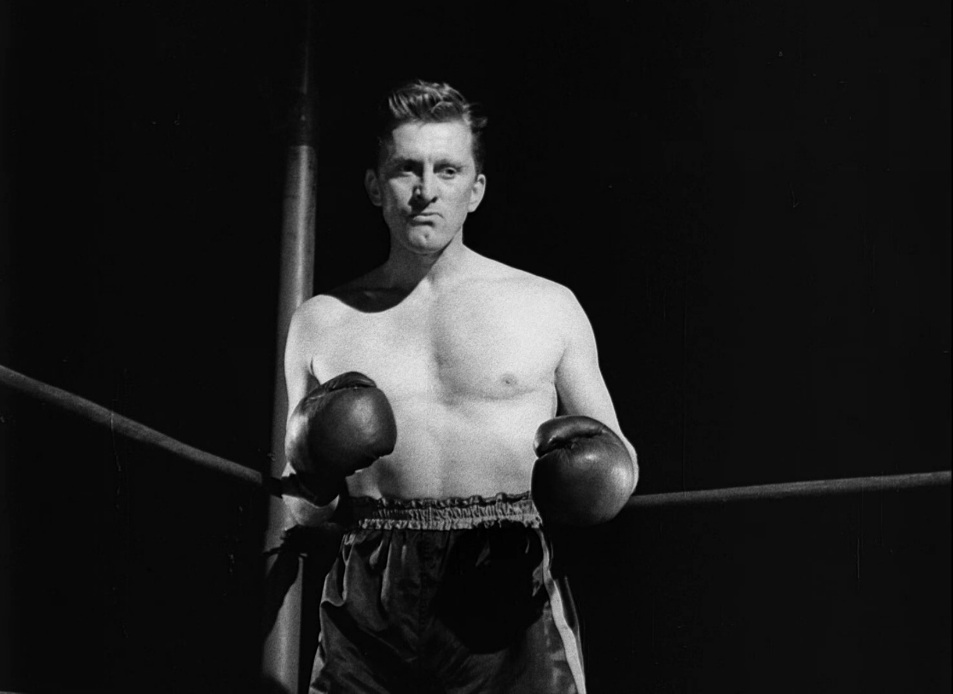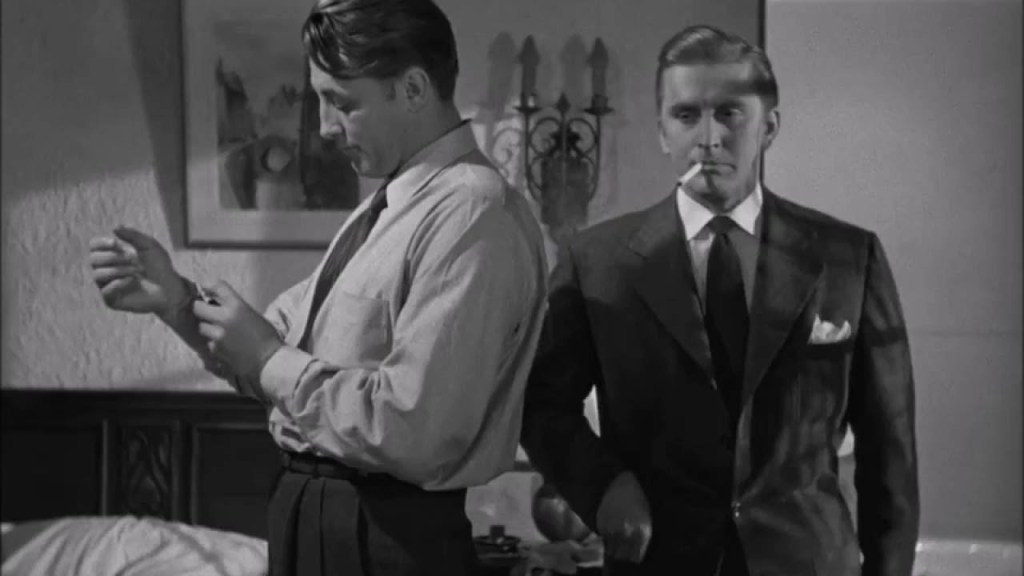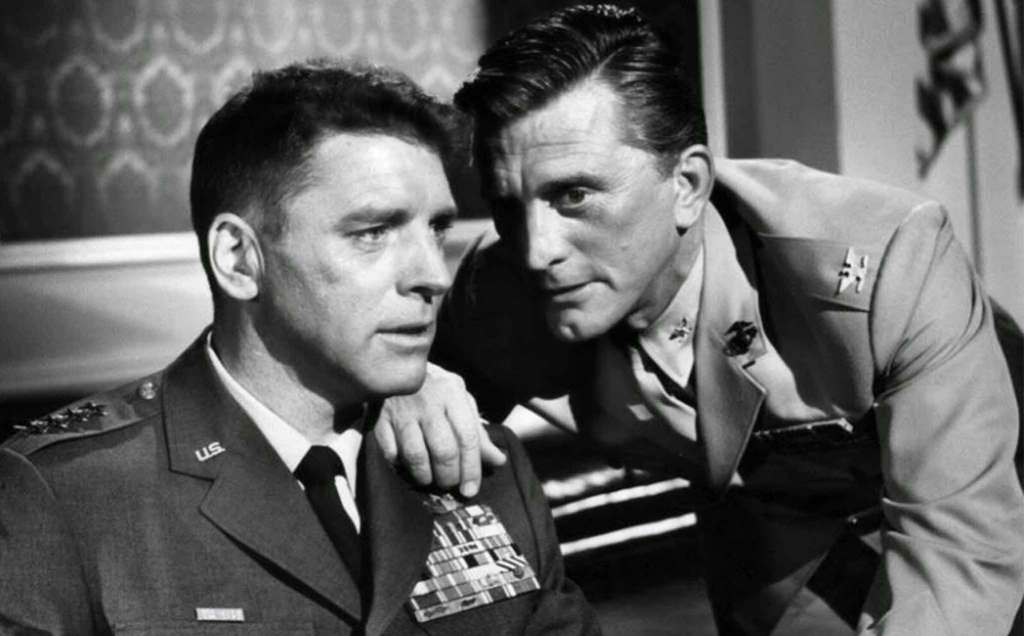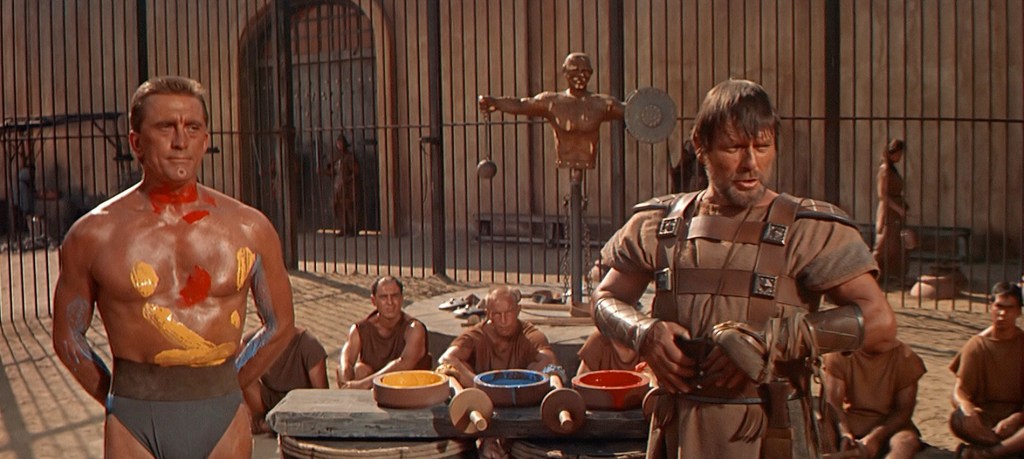Kirk Douglas Movies: A Look Back at 12 of His Most Famous Roles and Films
His films have entertained audiences for over 70 years, and we’re looking at a dozen classics

Something that’s common knowledge is that actor Kirk Douglas was a fighter — and that’s not simply due to the image he projected in the library of Kirk Douglas movies that are out there. To begin with, this man lived to be 103-years-old and, despite the fact he had suffered a severe stroke in 1991, he kept pushing forward. And it was that kind of strength that has kept us fascinated with him for all of these years, and will ensure that his incredible legacy lives on.
Born Issur Danielovitch (let’s face it, it’s a natural progression to Kirk Douglas from there) on Dec. 9, 1916 in Amsterdam, New York, Kirk Douglas movies began with 1946’s The Strange Love of Martha Ivers, but catapulted to stardom only three years later with Champion. Things just continued from there, with him starring in one classic Kirk Douglas movie after another, and moving from cop stories to Westerns to period dramas, most notable among them being 1960’s Spartacus.
What follows is a countdown of 12 of the most popular Kirk Douglas movies, and they genuinely only start to scratch the surface of all that he was able to achieve.
12. The Champion (1949)
Kirk Douglas plays Michael “Midge” Kelly, a guy who, desperate to pull his life together and help those around him, turns to boxing and has a shot at a championship. But then he’s told to throw the fight, which he has no intention of doing.
BEHIND-THE-SCENES: “About two months ago, I trained a lot longer than it took to make the picture,” he told the Richmond Times-Dispatch on June 7, 1949. “It was done on a tiny budget. We got through it in 24 days, but it took me twice that long to get ready. I’d never done any fighting, but in college I did some wrestling.

“I was up in New York recently, and some fellow asked me, ‘How did they fake all those fight scenes for you, and how could they get those closeups of you skipping rope?’ I couldn’t convince them that I hadn’t had a double for any scene in the picture, so I took them over to a gym and showed them just what I could do. But, believe me, I didn’t have a double for one inch of film.”
11. Out of the Past (1947): Kirk Douglas Movies
Robert Mitchum plays gas station owner Jeff Bailey, who used to be a private eye and is desperately trying to shake his past. Kirk Douglas plays criminal Whit Sterling, who starts coming around again and won’t let things lay.

BEHIND-THE-SCENES: The Evening Herald Courier, in a profile of the actor, commented, “Fan mail began to pour in [for Douglas]. The mail commented approvingly on the hole in his chin. That’s what Kirk jokingly calls it, though of course it’s really a dimple and one of his most striking facial characteristics. Despite the sudden acclaim, fan response and movie offers — he’s working now as a suave racketeer in Out of the Past — Kirk shows that he has no holes in his head.”
“I was in so many flops on the stage,” he explained, “that people used to say, ‘Hi, Kirk — what flop are you in now?’ And as for movies, I’ve enough sense to know that I could get a lousy part tomorrow — or a good part I was lousy in.”
10. The Bad and the Beautiful (1952)
Movie producer Jonathan Shields (Kirk Douglas) has made his career by crushing anyone who’s gotten in his way, but now he finds that he needs a writer, director, and actress that he abused in the past while making them successful. The real question is whether or not they’ll work with him again.

BEHIND-THE-SCENES: In 1952, The Los Angeles Times described Kirk Douglas’ character as “a bad man, but you never quite hate him.” Vincente Minnelli, who directed The Bad and the Beautiful, explained, “People who read the script asked me why I wanted to do it; it was ‘against Hollywood,’ etc. I told them I didn’t see the man as an unregenerate heel — first, because we find out he has a weakness, which makes him human, and second, because he’s as tough on himself as he is on everybody else, which makes him completely honest. That’s the complex, wonderful thing about human beings — whether in Hollywood, in the automobile business or in men’s neckties.”
9. Lonely Are the Brave (1962): Kirk Douglas Movies
Now this is an interesting twist: Kirk plays a cowboy who intentionally gets himself arrested and, once in jail, begins planning an escape for himself and an old friend.
BEHIND-THE-SCENES: Having read the 1956 novel The Brave Cowboy, Kirk Douglas, through his Joel Productions company, convinced Universal to finance this film and allow him to star as John W. “Jack” Burns. In an article on the film at TCM, the actor is quoted as saying that the film’s story “happens to be a point of view I love. This is what attracted me to the story — the difficulty of being an individual today.”
8. Seven Days in May (1964)
Martin “Jiggs” Casey (Kirk Douglas) is serving as aide to the President of the United States (Frederic March) when he discovers that General James Scott (Burt Lancaster) is plotting a military coup in seven days. Casey self-appointed mission is to figure out how to prevent it. One of the writers is Rod Serling, creator of The Twilight Zone; and John Frankenheimer directs.
BEHIND-THE-SCENES: In an excerpt from their review of Seven Days in May, cineaste.com offers, “The film is conceived as a political thriller, and does not aim to be a complex exploration of Cold War political positions or of individual characters. The main figures, skillfully played by Hollywood stars like March, Lancaster and Douglas, are asked to do nothing more than be convincing in the different political and personal stances they take.

“Frankenheimer uses a great many close-ups of Douglas deep in thought, weighing his political options, conveying the difficulty he has in deciding to act against Scott. A solitary March emanates calm and humanity and even provides a revelatory moment of what the presidency costs him emotionally. Frankenheimer often photographs a remote, ramrod-straight Lancaster from the back, capturing his rigidity, power, and need to control. One of the film’s strengths is that Scott never seems pathological, but is shown to be a smart, calculating, self-righteous ideologue who believes that the military knows what’s right and that our elected officials should therefore be bypassed.”
7. Paths of Glory (1957): Kirk Douglas Movies
Kirk Douglas finds himself in the middle of a complicated situation when he is told that three innocent soldiers are going to face court-martial for a mistake made by his superior officer. Directed by Stanley Kubrick.
BEHIND-THE-SCENES: In a video retrospective on Kirk Douglas, Variety pointed to the making of Paths of Glory, noting it was the first time the actor had worked with director Stanley Kubrick: “It was a creative battle from the start. Kubrick made major script rewrites without telling Douglas. But Douglas, the film’s producer, rejected Kubrick’s script. A few years later, Douglas hired Kubrick to direct the big-budget Spartacus.” As it turned out, things weren’t much better their second time around.
6. Detective Story (1951)
In one of the harder-edged Kirk Douglas movies, Detective James McLeod (Douglas) is a cop with no tolerance for criminals, and his views interfere with a case involving an abortionist who has claimed at least one victim. From there, secrets are revealed that threaten to destroy his very world.
BEHIND-THE-SCENES: On November 15, 1951, The Courier-Journal reviewed Detective Story and said, “Kirk Douglas, in the part of the detective, is particularly fine in showing his opinion of his own unfounded righteousness and his low opinion of crooks. Douglas, being an actor who can be brutal without seeming to try, also is effective in the way in which he browbeats suspects of crime.”
5. Gunfight at the O.K. Corral (1957): Kirk Douglas Movies
What seems like a good idea at first goes disastrously (and historically) wrong when lawman Wyatt Earp (Burt Lancaster) and outlaw Doc Holliday (Kirk Douglas) decide to put their differences aside, which ultimately leads to the infamous gunfight.
BEHIND-THE-SCENES: Ben Mankiewicz, host at TCM, related a story on air about the fact that co-stars Kirk Douglas and Burt Lancaster had not been nominated at the Academy Awards for their performances in Gunfight at the O.K. Corral.
“At the 1958 Oscar ceremony, the year Gunfight would’ve been honored,” he explains, “Douglas and Lancaster joined forces to have a little fun with the fact that neither man earned nominations for the movie. Douglas and Lancaster got up on stage and sang a song together: ‘It’s Great Not to Be Nominated.’ That song, performed by two of the biggest stars of that era, was such a hit, they performed it again the following year.”
MUST-READ: Check out all of our coverage of TCM!
4. 20,000 Leagues Under the Sea (1954)
Kirk Douglas movies enter a bit of fantasy! Set in the late 1800s, this Disney classic, based on the Jules Verne novel of the same name, sees a team of people (including Kirk Douglas as harpooner Ned Land) setting out to sea to hunt a giant sea monster that has reportedly been attacking ships. Instead, they find the advanced submarine captained by James Mason’s Nemo.
BEHIND-THE-SCENES: Reported the New York Daily News on December 19, 1954, “Making 20,000 Leagues Under the Sea was the most thrilling real-life adventure Douglas ever experienced. He was scared stiff the first time he went underwater in his diving helmet, but he became so fascinated with what he saw on the bottom of the sea and in the waters around him, that he forgot his fright and was soon able to stay down 55 minutes at a time, which is as long as it is safe to depend on one’s oxygen tank.”
3. Lust For Life (1956): Kirk Douglas Movies
In what was an extremely different role amongst Kirk Douglas movies, the actor taking on the character of Dutch painter Vincent Van Gogh in a telling of his life story.
BEHIND-THE-SCENES: “Kirk Douglas plays the part of the troubled genius,” reviewed The Boston Globe on November 23, 1956, “and gives the character a fervid, passionate quality which is intriguing. It is possible to forget that Douglas is acting the role, so convincing is his portrayal.”
2. The Vikings (1958)
A long feud has gone on between Viking Prince Einar (Kirk Douglas) and the slave Eric (Tony Curtis), which grows increasingly worse when Einer kidnaps the intended bride of King Aella (Frank Thring), Princess Morgana (Janet Leigh). Things get a wee bit more complicated when Einar learns that Eric is his half brother.
BEHIND-THE-SCENES: In its July 20, 1958 review, the Valley Times enthused, “Since Kirk Douglas loomed dangerously in the movie The Champion, he has brought to Hollywood many sterling career attributes — among them a debonair daring, a professional integrity, inspired imagination and an impassioned extroverted courage of his convictions. It would take all these qualities and more to bring to the screen the most pretentious, the most startling picture of the year — The Vikings … As the ferocious, disfigured Viking fighter, Kirk Douglas turns in another Oscar-nomination job. His part fits like a mailed glove.”
1. Spartacus (1960): Kirk Douglas Movies
Whether he liked it or not, this is likely the role that Kirk Douglas will always be best known for, playing the Thracian gladiator who leads a revolt against the Roman Republic.
BEHIND-THE-SCENES: When he wrote his autobiography The Ragman’s Son — which went behind the scenes on many Kirk Douglas movies — the actor spoke to journalist Marilyn Wilson and observed, “When you are in my profession, you are constantly in a world of make believe, fantasy land. The characters you play become more real to you than you are. Things in your life grow further and further away, until you wake up to find that you know more about Spartacus or Van Gogh than you know about yourself. I wrote the book to get to know myself as well as I knew some of the characters I’d played.”

Additionally, in an interview with Entertainment Weekly, Douglas shared that he made no secret of the fact that blacklisted screenwriter Dalton Trumbo had penned the film’s script. “Spartacus represents all people who work for freedom,” he said. “Then I decided — the hell with it! I’m going to put his name on it. That’s the thing I’m most proud of. It caused me a lot of trouble, but it was worth it.”
Enjoy much more of our features on celebrities!
















